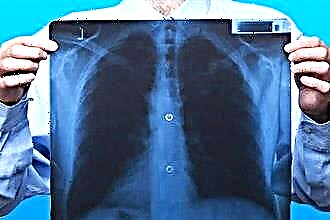Instructions for use
 Concor Cor belongs to the highly selective β1-adrenergic blockers that do not have an internal sympathomimetic effect, clinically significant membrane-stabilizing qualities and is indicated for long-term use in patients with symptoms of CHF (chronic heart failure).
Concor Cor belongs to the highly selective β1-adrenergic blockers that do not have an internal sympathomimetic effect, clinically significant membrane-stabilizing qualities and is indicated for long-term use in patients with symptoms of CHF (chronic heart failure).
A heart failure is unable to supply blood to tissues according to their metabolic needs at rest or during exercise. The condition is a serious and sometimes life-threatening complication of many cardiac diseases:
- ischemic heart disease (CHD) 50-70%;
- hypertension 12-17%;
- dilated cardiomyopathy (DCM) 7-14%;
- valvular heart disease 6-12%;
- other pathologies of the cardiovascular system 5-10%.
An important role in the development of CHF is played by the activation of the sympathoadrenal system (SAS). In most patients, the pumping function of the heart is reduced and chronic hyperactivation of neurohormones (adrenaline and norepinephrine) is present.
Effects of excessive activation of SAS in CHF:
- Dysfunction and decrease in the number of cardiomyocytes (by necrosis and apoptosis);
- Deterioration of cardiohemodynamics (myocardial blood supply);
- Decrease in the density and strength of binding of the receptor with the biologically active substance;
- Persistent tachycardia;
- Myocardial hypertrophy;
- Induction of myocardial ischemia due to tachycardia, hypertrophy and vasoconstriction (vasoconstriction);
SAS regulates the functions of internal organs through catecholamines. The most aggressive properties are norepinephrine. An increase in the level of this hormone from 600 to 900 pg / ml leads to an increase in mortality by 35-40%. Also, its high concentration increases the likelihood of fatal arrhythmias.
β1-adrenergic receptors are localized in the myocardium, adipose tissue, gastrointestinal tract, kidneys and are stimulated by hormones of the adrenal medulla.
Β stimulation effects1-AR:
- increased strength and heart rate;
- stimulation of impulse conduction along nerve fibers;
- an increase in renin secretion in the kidneys (the development of arterial hypertension);
- activation of lipolysis (breakdown of adipose tissue);
- decreased motility and tone of intestinal smooth muscles.
Indications: what does the drug help from?
The main indication for the constant use of Concor Cor: CHF and left ventricular systolic dysfunction (EF <40%), the main clinical signs of which are:
- decreased exercise tolerance;
- dyspnea;
- fluid retention in the body;
- progressive course;
 Symptoms of left ventricular failure:
Symptoms of left ventricular failure:
- venous congestion in the lungs - shortness of breath on exertion, cough, hemoptysis, cardiac asthma;
- decrease in minute blood volume - weakness, drowsiness, nocturia (increased nocturnal urine output), acrocyanosis (bluish tint of the tip of the nose, lips, ears, fingers and toes), arterial hypotension;
- Myocardial dysfunction - tachycardia, irregular pulse, left heart dilatation.
The use of Concor Cor in patients with CHF can slow the progression or reverse development of LV dysfunction and circulatory failure, as well as reduce the risk of sudden cardiac death.
Concor Cortex Effects:
- Decrease in heart rate (negative chronotropic effect), which eliminates myocardial ischemia (due to a lower need for heart tissue in oxygen and lengthening of diastolic coronary blood flow).
- Blocking the processes of myocardial remodeling (reduction of hypertrophy and cardiac cavities).
- Normalization of LV diastolic function.
- Increased cardiac output (EF).
- Antihypertensive effect (reduction of myocardial afterload). The drug relaxes the smooth muscle fibers of the vascular wall and reduces its total peripheral resistance (OPSS). Inhibition of the secretion of renin, which, turning into angiotensin II, causes vasoconstriction (spasm of arterioles).
- Deceleration of AV conduction. The drug reduces the concentration of Ca2+ in the cells of the sinoatrial and AV nodes, which prevents the occurrence of rhythm disturbances.
- Decrease in electrical instability of the myocardium.
- Suppression of the sympathoadrenal system. Interference with the interaction of norepinephrine with specific receptors.
- Decreased pressure in the portal vein system.
- Decrease in the production of intraocular fluid;
Long-term use of Konkor Bark promotes an increase in the number of β-adrenergic receptors, as a result of which the effect of its use gradually increases.
Concor Cor belongs to the group of β-AB with double clearance (partially soluble in lipids and in water). It undergoes biotransformation by hepatocytes by 45-65%, the rest is excreted by the kidneys in its primary form. This explains the low possibility of competition of the drug Concor Cor with other medicines and the relative safety in the treatment of patients with concomitant hepatic and renal dysfunction.
The drug is almost completely absorbed from the gastrointestinal tract. The half-life is 9-12 hours. Food intake does not alter the bioavailability of the medication.
Concor Cor is characterized by high cardioselectivity (14-19 times higher affinity for β1- β2-AR). This determines the safety of prescribing the drug to a wide contingent of patients (side effects occur in 0.1-1%).
Medication in average therapeutic doses does not change bronchial patency and breathing parameters in patients with chronic obstructive pulmonary disease.
Concor Cor is safe for patients with diabetes mellitus, since it does not cause an increase in basal blood sugar levels and does not require a dosage adjustment of antidiabetic agents.
Method of administration and dosage
 Concor Cor is taken once a day, preferably with breakfast, with a glass of water. The tablet should not be chewed.
Concor Cor is taken once a day, preferably with breakfast, with a glass of water. The tablet should not be chewed.
The clinical protocol for the treatment of CHF with LV systolic dysfunction involves the use of a complex of drugs: ACE inhibitors, β-blockers (Concor Cor), angiotensin II antagonists, diuretic and cardiac glycosides.
Before starting the appointment, you need to make sure that the patient does not have data indicating an exacerbation of cardiac pathology.
Treatment with Concor Cor begins with a gradual increase in the dose to the average therapeutic one and taking into account the emerging reactions of the body.
Dose titration scheme (transition to the next stage is possible if the previous dose is well tolerated):
- first week - 1.25 mg Concor Cor;
- the second - 2.5 mg;
- the third - 3.75 mg;
- fourth - eighth weeks - 5 mg;
- ninth - twelfth weeks - 7.5 mg;
- further maintenance intake - 10 mg / day.
It should be remembered about the possible manifestations of a transient exacerbation of circulatory failure, arterial hypotension or a decrease in heart rate during saturation therapy.
Contraindications
Contraindications for the appointment of Concor Cor in CHF are:
- decompensated acute cardiovascular failure, requiring resuscitation measures with intravenous administration of inotropic drugs (adrenaline, norepinephrine, dopamine, dobutamine);
- cardiogenic shock, alveolar pulmonary edema;
- AV block II-III degrees;
- sinus node dysfunction syndrome;
- sinoatrial blockade;
- symptomatic decrease in heart rate, arterial hypotension;
- uncontrolled bronchial asthma;
- severe obliterating peripheral vascular disease;
- untreated pheochromacytoma;
- metabolic acidosis;
- intolerance to the components of the medication.
Side effects
Possible side reactions when using Concor Cor:
- bradycardia, transient worsening of CHF, hypotension, impaired intracardiac conduction, orthostatic collapse;
- vertigo, migraine, fainting;
- hearing loss;
- bronchospasm in patients with BA and COPD, allergic rhinitis;
- nausea, stool disturbance;
- itching, hyperemia, edema, urticaria;
- muscle weakness, cramps;
- decreased potency;
- depressed mood, sleep disturbances, nightmares;
- increased TG, transaminase activity (ALT, AST);
- asthenia, fatigue.
In case of accidental use of a double dose, dizziness, AV-blockade of the III degree, a decrease in heart rate, hypotension may develop. Therapy for this condition is symptomatic.
Analogues and substitutes for drugs
The active ingredient in Concor Cor is Bisoprolol. The drug is quite cheap, the price of 30 tablets varies from 160 to 200 rubles.
Analogues on the Russian market:
 Bisoprolol, Aritel, Biprol (Russia);
Bisoprolol, Aritel, Biprol (Russia);- Bidop, Bisoprolol Richter (Hungary);
- Bikard, Corbis (India);
- Bisokard (Poland);
- Cordinorm, Bisostad, Bisoprolol Hexal, Sandoz, Ratiopharm, Teva (Germany);
- Bisoprolol Krka (Slovenia);
- Dorez (Macedonia);
- Coronal (Slovakia).
Substitutes for Concor Bark can be drugs with the active substance "Metoprolol". These two β-blockers have similar mechanisms of action and indications for use. The difference between them is that Metoprolol has a short duration of action and must be taken 3-4 times a day.
Conclusions
The effectiveness of β-AB has been proven by numerous studies, due to which drugs of this group are included in clinical protocols.
Long-term therapy in patients with LV dysfunction improves quality of life and reduces mortality by 25-30%.
It is worth remembering that in no case should you abruptly stop taking it due to the high probability of developing a transient exacerbation of the disease.
Before using the drug, you need to consult a doctor and read the instructions carefully.

 Bisoprolol, Aritel, Biprol (Russia);
Bisoprolol, Aritel, Biprol (Russia);

